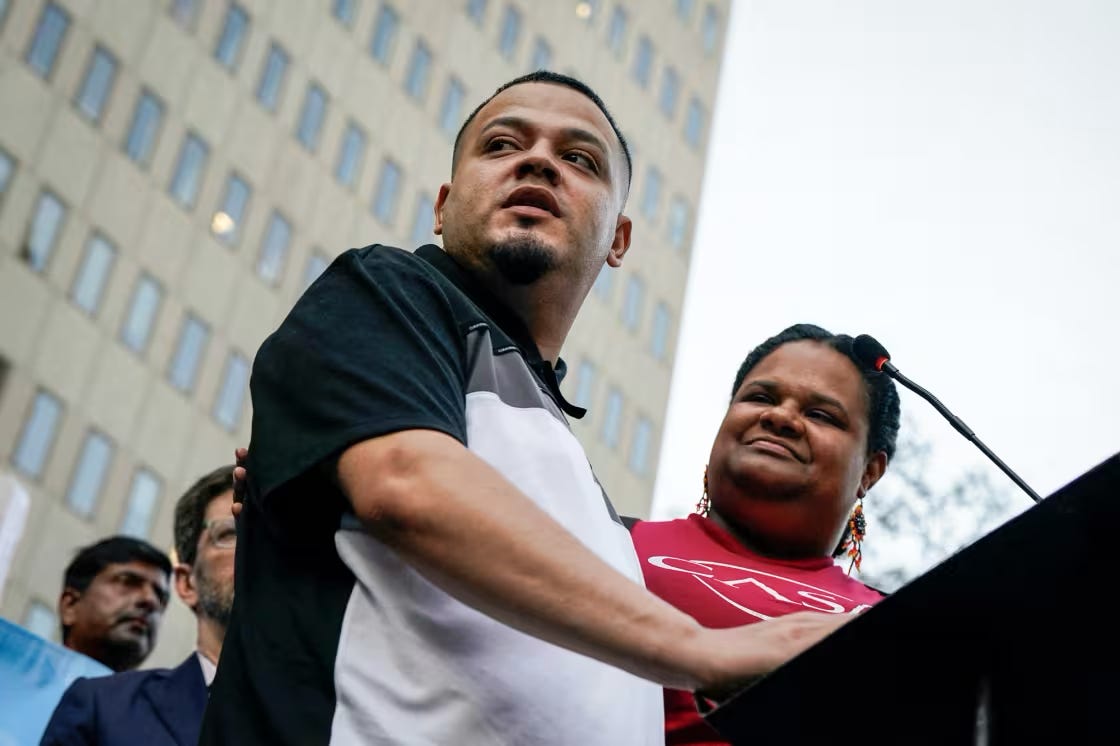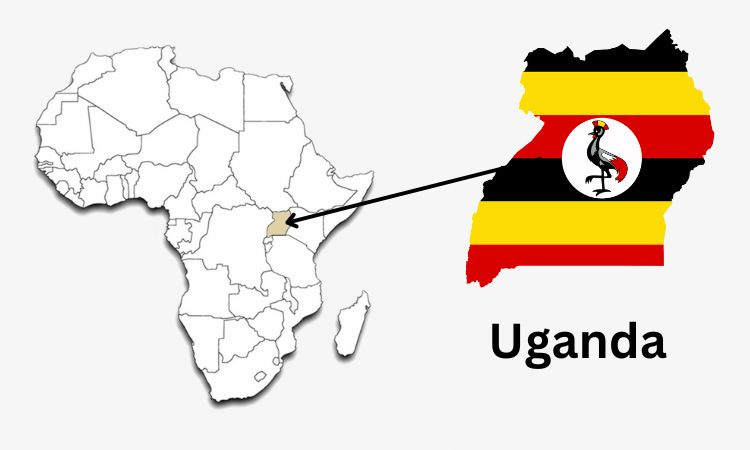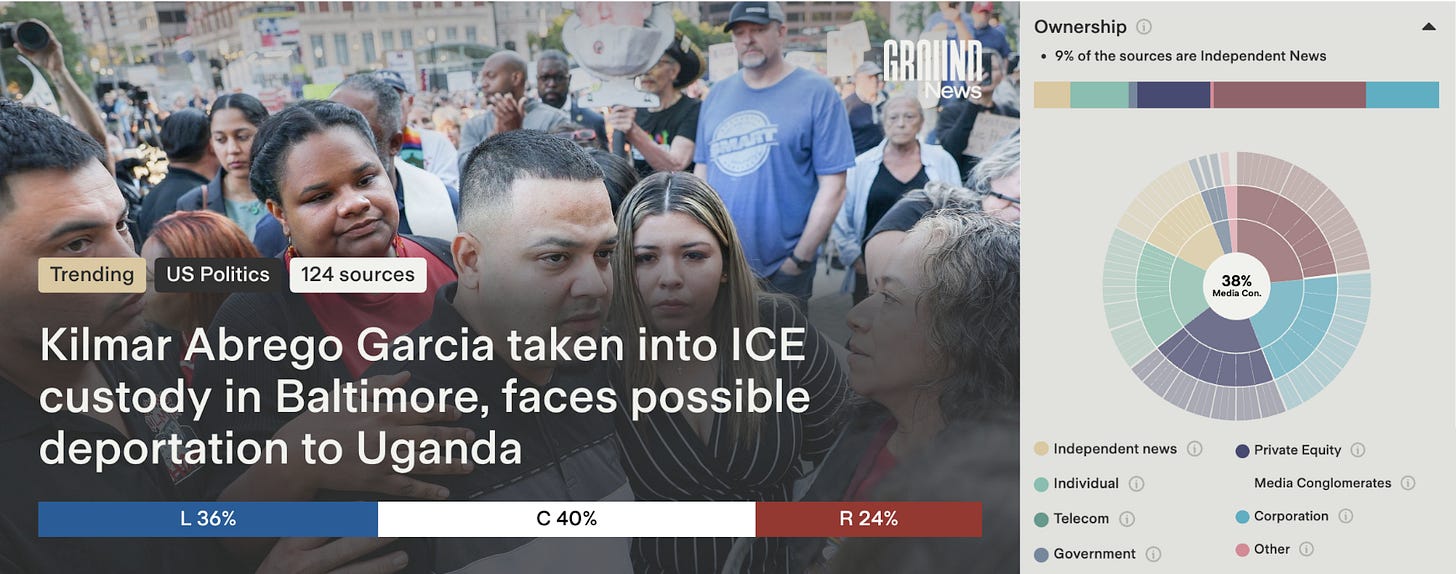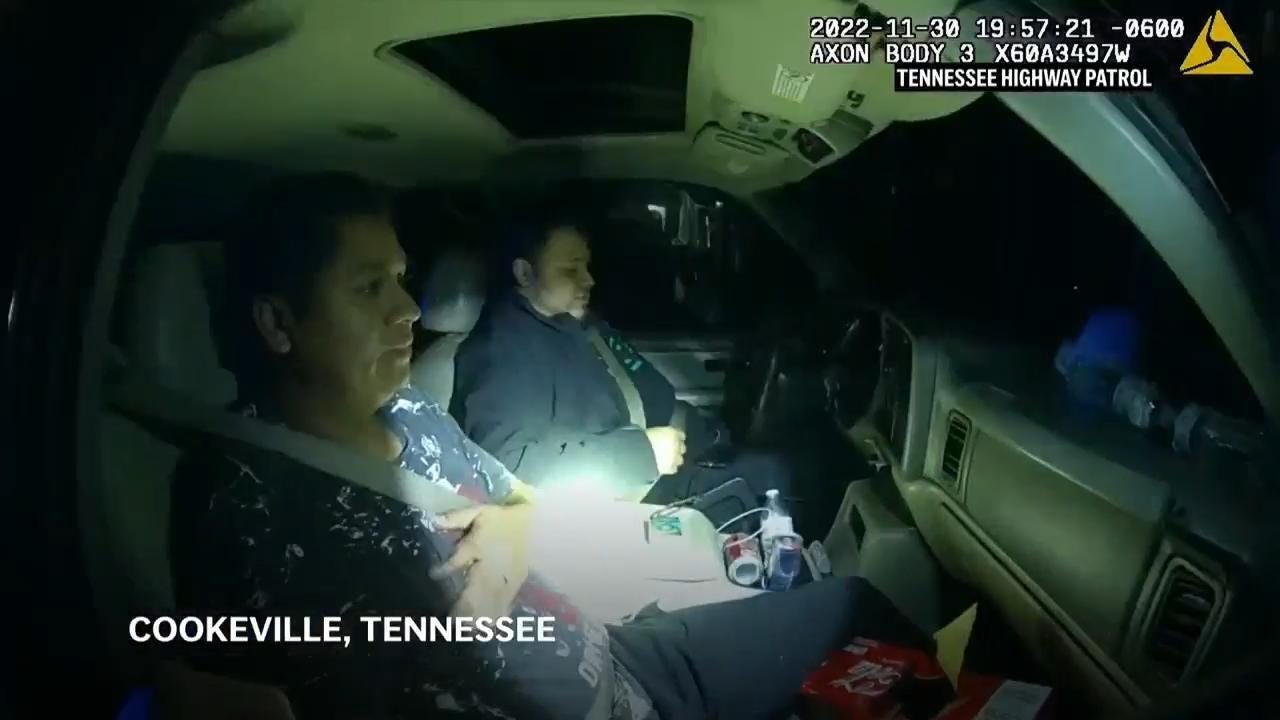The DOJ Is Obsessed with Kilmar Abrego Garcia
Forced to plead guilty immediately or be deported
Sponsored by
Kilmar Abrego Garcia's freedom lasted barely three days. After spending months fighting the Trump administration's attempts to keep him detained, the 30-year-old sheet metal worker had finally been released from detention by a federal judge on Friday afternoon to await his January trial on human smuggling charges. But on Monday morning, he was arrested again by Immigration and Customs Enforcement agents at their Baltimore field office as he arrived for his immigration check-in.
The arrest came after ICE delivered a chilling ultimatum to his attorneys within minutes of his release: report to ICE's Baltimore field office by Monday morning, or face deportation to Uganda — a country halfway around the world where Abrego Garcia has no ties and could face indefinite detention in dangerous conditions.
Outside the ICE office after the arrest, his attorney Simon Sandoval-Moshenberg accused immigration authorities of deception. The stated purpose of Monday's meeting was for an interview, he said. "Clearly, that was false," he added, noting that officials provided no explanation for why Abrego Garcia was being detained or where he would be taken. Abrego Garcia filed a petition in federal court seeking to block his deportation to any country and ensure he receives a full immigration trial.
The Trump administration's obsession with this one man — a father of three who was wrongfully deported in March before being brought back to face the criminal charges — has become a case study in how cruelty, spectacle, and vindictive prosecution have replaced due process and human dignity at the heart of American immigration enforcement
The case that embarrassed an administration
To understand why the Trump administration is so fixated on Abrego Garcia, you have to go back to March, when ICE agents pulled him over and detained him while he was driving with his son in Maryland. A 2019 court order explicitly barred his removal to El Salvador — where an immigration judge had found he faced persecution from gangs — but the administration shipped him there anyway.
It was, by the government's own admission, an "administrative error." But rather than quickly correcting the mistake, the Trump administration fought tooth and nail to avoid bringing him back, even as federal courts ordered it to do so. The case became a public embarrassment, highlighting the arbitrary cruelty of its enforcement tactics and undermining the administration's narrative that it was only targeting dangerous criminals.
When the Supreme Court finally forced the administration to facilitate Abrego Garcia's return in June, officials didn't admit error and move on. Instead they doubled down, indicting him on federal human smuggling charges and unleashing a campaign of character assassination. Homeland Security Secretary Kristi Noem branded him an "MS-13 gang member, human trafficker, serial domestic abuser, and child predator" — allegations he, his family, and his attorneys have vigorously denied.
Plea bargain as coercion
On Thursday, as it became clear that the judge overseeing Abrego Garcia’s trial would release him from criminal custody, federal prosecutors made him an offer: stay in jail until Monday, plead guilty to the smuggling charges, and, after serving whatever sentence the court imposes, be deported to Costa Rica, where officials agreed he could live freely as a refugee with residency status.
Abrego Garcia declined to extend his detention voluntarily and was released Friday afternoon as ordered by the court. Within minutes, ICE informed his attorneys that the government now intended to deport him to Uganda.
"There can be only one interpretation of these events," his lawyers wrote in a court filing. "The DOJ, DHS, and ICE are using their collective powers to force Mr. Abrego to choose between a guilty plea followed by relative safety, or rendition to Uganda, where his safety and liberty would be under threat."
A pattern of theatrical cruelty
Human rights abuses in Uganda have been documented, including what the State Department calls "harsh and life-threatening prison conditions." Uganda recently signed an agreement with the US to accept deportees who "may not be granted asylum in the United States but are reluctant to or may have concerns about returning to their countries of origin" — but that deal explicitly excludes individuals with criminal records.
Abrego Garcia has no connection to Uganda at all. He doesn't speak the local languages, though English is the national language. He has no family there. His wife — a US citizen — and three children would have no practical way to visit him.
But that is part of the point. The Trump administration's immigration enforcement strategy has consistently prioritized spectacle and cruelty. This is the same administration that created "Alligator Alcatraz," a tent detention camp in the Florida Everglades surrounded by predators.
It's the same administration that shipped migrants, including Abrego Garcia, to CECOT, El Salvador's notorious mega-prison, where videos of them being stripped and processed were filmed to make White House social media content. The 40,000-capacity facility holds prisoners in 80-person cells with no beds, no rehab programs, no daylight, and no contact with the outside world. As El Salvador's president Nayib Bukele boasts: "They don't see the light of the sun ever."
And it’s the same administration that sent eight migrants to South Sudan — a country the State Department warns Americans not to visit because of "crime, kidnapping, and armed conflict" — despite their having no ties there.
From Ground News:
What’s the media telling you about Kilmar Abrego Garcia? It depends a lot on where you get your news.
With over 200 sources covering this story, Ground News tells you who’s behind the news sources you read, like who owns and funds each media outlet.
If you like The Preamble, you’ll love their app and website. It pulls in every perspective on the most polarizing issues and then breaks down each source’s political bias, factuality, and ownership, so you understand that news isn’t just reported — it’s crafted.
Ground News is nonpartisan and subscriber-supported by readers like us. And you get 40% off the same unlimited Vantage plan I use.
The worst of the worst?
The administration consistently claims it's targeting the "worst of the worst" — violent criminals who pose a danger to American communities. But Abrego Garcia's case reveals the gap between that rhetoric and the reality. Despite months of inflammatory statements from the highest levels of government, he has never been charged with gang membership, terrorism, or violent crimes.
The human smuggling charges stem from a 2022 traffic stop when he was found with nine passengers in his car. He was neither arrested nor ticketed at the time. It took the government 903 days after that stop to obtain an indictment — and only after he had successfully challenged his wrongful deportation in federal court.
If the government has such strong evidence that Abrego Garcia committed the crimes they allege, why not let the criminal justice system run its course? A Justice Department spokesperson said Abrego Garcia "can plead guilty and accept responsibility or stand trial before a jury," but that misses the point entirely. The choice shouldn't be between a coerced guilty plea and exile to a country where his safety would be at risk.
The bigger picture
Before his arrest Monday morning, Abrego Garcia delivered an emotional plea to dozens of supporters gathered outside a federal building: "To all of the families who have also suffered separations or who live under the constant threat of being separated, I want to tell you that even though this injustice is hurting us hard, we must not lose hope."
Abrego Garcia’s case is not about public safety or the rule of law — it's about performance, punishment, and political messaging. When ICE can threaten to send someone to Uganda within minutes of their court-ordered release, when the government can use deportation as a tool to force confessions of guilt, when federal agencies can coordinate to circumvent judicial orders, we've abandoned any pretense that immigration enforcement serves legitimate government interests.
A federal judge has temporarily blocked Abrego Garcia’s deportation while his legal case continues. But whatever the outcome, this is about more than one man's fate — it’s about the kind of country we're willing to become. And that should concern all of us, regardless of our views on immigration policy.











The entire basis for these inflammatory accusations against Abrego Garcia, parroted proudly by Noem and Vance in statements with objective falsehoods added, likely comes from the word of a single anonymous informant who almost certainly had their own motivations for naming someone as a gang member. We’ve seen how flimsy this “evidence” can be… remember when Trump actually thought the characters M, S, 1, and 3 were literally tattooed on Abrego Garcia’s fingers, when it was actually just an obvious photoshop job intended to mislead people about the meaning of the symbols tattooed below the photoshopped characters? To Terry Moran who had just tried to steer an interview back on track, Moran saying the tattoos were interpreted by some as gang related but there was no proof, Trump got upset and cried: “Don’t do that! M, S, one, three, it says M, S, one, three!” It’s hilarious until you remember it is destroying actual lives.
Innocent people are being labeled gang members based on a points system that awards multiple points for completely innocuous things like popular generic tattoos, sports jerseys, or simply knowing someone else who accumulated points in this same arbitrary system. It’s so easy to make anyone sound like a gang member when you’re working with criteria this loose. In fact, using their own logic, MAGA itself could easily be classified as a gang. Here’s how you identify a MAGA gang member using their point system - and remember, 10 points is enough to shave someone’s head and deport them to Epstein Island: wearing a red hat (10 points), using the phrase “that’s just my opinion” after being proven wrong (4 points), owning more than three guns (5 points), having a Punisher skull sticker (3 points), attending a rally where violence was threatened (7 points), participating in January 6th (39 points), owning a Confederate flag (12 points), using racial slurs (13 points), threatening election workers (21 points).
But on a more serious note, if you haven’t heard about the government lawyer who’s blowing the whistle on his treatment after years of loyal service - even during Trump’s first term, when he was beloved by MAGA - his story is chilling. He fell from grace simply because he had to admit that Abrego Garcia’s deportation to El Salvador was an administrative error, or else commit obvious perjury. His name is Erez Reuveni, and his testimony reveals how even those who bend over backwards to give Trump the benefit of the doubt can have their lives destroyed if they choose loyalty to the Constitution over total submission to Trump. His story is terrifying because it shows how much of this is happening behind closed doors, and we only learn about it when the rare person with enough courage speaks out. I can only imagine the amount of tell-all books that are going to come out once people feel like the leverage against their livelihoods eventually fades away.
As quoted in the piece, "When ICE can threaten to send someone to Uganda within minutes of their court-ordered release, when the government can use deportation as a tool to force confessions of guilt, when federal agencies can coordinate to circumvent judicial orders, we've abandoned any pretense that immigration enforcement serves legitimate government interests."
This is what scares me the most. It doesn't matter if he is guilty or not. This is a 5-alarm fire when we are abandoning the very principle our country was founded on, the rule of law.